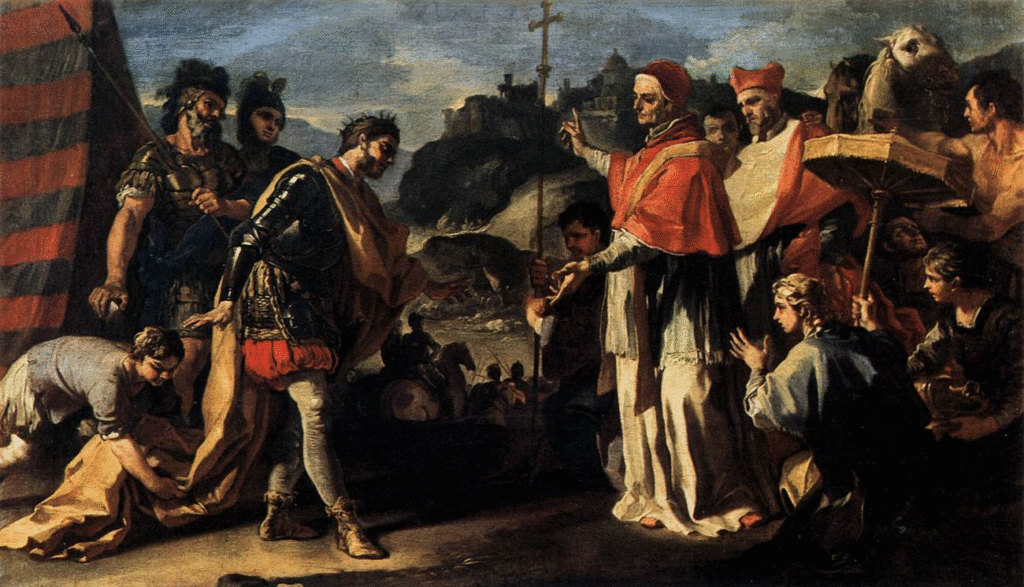Explore the life of Pope Leo I, known as Leo the Great. Discover his remarkable leadership, deep faith, and powerful role in shaping the Catholic Church during the 5th century.

Biography of Pope Leo I – The Great Defender of the Faith
Pope Leo I, also known as Leo the Great, served as the Bishop of Rome from 440 AD until his death in 461 AD. He remains one of the most respected and influential popes in the history of the Catholic Church. His leadership came during a time of political instability, theological disputes, and the looming threat of barbarian invasions.
Born around 400 AD in Tuscany, Italy, Leo quickly gained recognition for his intellect and diplomatic abilities. He was chosen to mediate disputes even before becoming pope. He served under previous popes in both administrative and diplomatic roles, which prepared him well for the responsibilities he would eventually undertake as the head of the Church.
Leo became pope during a tumultuous era. Rome was under constant threat, and heresy was spreading across the Christian world. Leo stepped into this role with firm resolve. Leo led with clarity, purpose, and courage. Leo never backed down from defending the true teachings of the Church.

Theological Contributions and the Tome of Leo
One of Pope Leo’s most significant accomplishments was his Tome, a doctrinal letter written to settle the theological dispute regarding the nature of Christ. His work was central to the Council of Chalcedon in 451 AD, which declared that Christ is both fully divine and fully human—two natures in one person. This was a pivotal moment in defining orthodox Christian belief.
He was not merely a writer; he was a teacher. He was not merely a speaker; he was a voice for unity. He was not merely a ruler; he was a spiritual father to millions.
Diplomatic Genius: Confronting Attila the Hun
Perhaps one of the most legendary moments of Pope Leo’s papacy occurred in 452 AD. When Attila the Hun advanced towards Rome, Leo met him personally. Miraculously, Attila turned back, sparing the city. While historians debate what exactly happened, Leo’s courage and presence played a crucial role in this peaceful outcome.
This act earned him great admiration throughout the Christian world. It wasn’t just an act of bravery; it was a moment of divine intervention, diplomacy, and strong moral leadership. It showed the world that the Church, through its leader, could stand firm even when facing armies.

Legacy and Canonization
Pope Leo I passed away on November 10, 461 AD. His contributions were so profound that he was later declared a Doctor of the Church. He was also one of only two popes given the title “the Great,” the other being Pope Gregory I.
His feast day is celebrated on November 10. His legacy continues to shape Christian theology, Church authority, and the role of the pope as both a spiritual and political leader.
Conclusion
Pope Leo I’s life is a testament to unwavering faith, intellectual brilliance, and unmatched courage. He defined doctrine, challenged invaders, and protected the Church during its most vulnerable time. His name is forever etched in history, not just for his title, but for the greatness he truly lived.
He was a shepherd. He was a teacher. He was a hero. The Church, even today, walks paths paved by his wisdom and strength.
